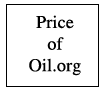Things You can do to Protect Yourself from Rising Gas Prices
As gasoline prices once again rise above $3 a gallon, there are things you can do to protect yourself and save energy. These changes will require adjusting your habits and more walking, but we are in a time when major changes are inevitable.
The Federal government could act in the following ways to moderate oil prices and keep money in your wallet, but in my opinion none of these things will be done:
1. Immediately withdraw U.S. forces from Iraq. - The current level of world oil prices, around $70 a barrel, is directly related to fears that warfare will further disrupt oil shipments. It has been estimated that high oil prices related to the Iraq War deprive U.S. consumers of $25 billion a year at level of $50 a barrel, of course the amount is now higher. It has also been estimated that $7 billion of ExxonMobil's $36 billion in profits in 2005 is traceable to market conditions created by the Iraq War. These windfall, war profiteering profits, continue to flow into the accounts of ExxonMobil and the other major oil companies, unchecked.
2. Immediately declare that there will be no U.S. or Israeli attack on Iran. - The threat of attack on Iran has been the primary "extra" boost that shoved world oil prices from the low $60s to the $70s level. The fear factor related to the possible use of nuclear weapons further heightens speculation in the oil market. There is every possibility that any kind of attack on Iran could bring massive disruption in the world oil market, beyond comprehension.
3. Immediate efforts to mediate conflicts between oil companies, popular movements and governments in Nigeria, Chad and Venezuela. This would require the U.S. government to take a neutral position toward U.S. oil companies and assist in negotiating taxes and royalties that are more equitable to citizens of the countries just mentioned. Attacks on oil facilities in Nigeria by popular movements seeking a larger share of oil revenues has been a continuing factor in maintaining high oil prices.
4. Gasoline rationing - Gasoline rationing is needed simply so that low- and middle-income people can have access to enough fuel to enable them to go to work without bankrupting them. It is also a means of conserving petroleum products in an equitable way. As demonstrated in wartime, price is not a satisfactory means of conservation and distribution. I believe we are entering a time when gasoline rationing will become a permanent part of life, and the sooner the better for our pocketbooks.
5. Investigation of price fixing - Politicians call for price-fixing or price gouging investigations everytime there is a spike in gasoline prices, knowing full well that the Federal government is unprepared to investigate and that courts are likely to favor oil companies in price fixing cases. Congress could change the imbalances with adequate funding for investigation and prosecution, but is unlikely to do so.
In this situation, here are things we can do to try to cut our losses:
1. Lobby for all the above and boycott ExxonMobil and firms connected to its board of directors for reasons described on the ConsumersforPeace.org website.
2. View your car as your enemy. Use it as little as possible. Every day you don't use your car is a good day. Walk to anywhere you have to go that is under a mile. For shopping, use a fold-up grocery cart. Make no quick trips to the store; do without unless what you need is an emergency. Share cars when you can.
3. Shift your diet toward a vegetable base and away from processed foods. Meat, chicken and fish are energy-intensive as are processed foods. Try to buy foods that are produced locally, not requiring much truck transport. The goal here is to reduce the overall demand for petroleum in the food system, and you will also save money.
4. Try to save at least $5 a day. No matter what, put a $5 bill in a jar every day. Don't raid it. Encourage everyone in your family who drives a car to do the same. At the end of the year, you will have at least $1,820 that you don't have now that you can put in a CD. Saving will help compensate for what you are losing at the gas pump and will give you some real control over your economic life.
If you have additional suggestions for coping with gasoline prices, please let us know. Remember, you're on your own.
And please remember that the invasion and occupation of Iraq and the threat of nuclear attack or any other kind of attack on Iran are violations of international law and any code of human decency. The answer to our plight is not only in changing our purchasing and transportation habits but in changing our government and prosecuting those responsible for the illegal behavior that has brought us to this point.





